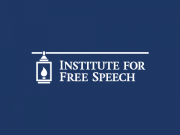It’s always interesting to note how polls — depending on how they’re conducted and who their target audience is — can vary and influence the political debate. For example, a week ago, CCP entered comments into the record of a Senate Committee on the Judiciary hearing that debated the merits of an amendment to overturn the Citizens United decision of 2010. Founder and chairman Brad Smith gives details in those comments about polls conducted by CCP that attempted to determine just how much the general public understood super PACs and the Citizens United decision in general:
[A] poll taken by Pulse Opinion Research for the Center for Competitive Politics in January 2012, found that despite heavy reporting about “super PACs,” 76 percent of respondents still did not know that “super PACs” must publicly disclose their donors. There is ample evidence that most voters are largely unaware of campaign finance laws, let alone the details of decisions such as Citizens United.
There’s also this:
We asked voters directly about the core question of Constitutional interpretation in Citizens United: “Do you think that the government should have the power to limit how much some people speak about politics in order to enhance the voices of others?” By a nearly four to one margin, respondents, like the Court, said no.
These findings are consistent with deep public support for the First Amendment and for the Supreme Court’s longstanding holding that campaign contributions and expenditures are vital to free speech protected by the First Amendment.
In light of these findings, a recent poll by the Washington Post and Pew seems a little light on their numbers. What makes this particularly interesting is that we find ourselves arguing the same point as Pew: that people are vastly under-informed when it comes to super PACs and what they do. The difference, of course, is that the WaPo mention suggests that this means super PACs wield little influence in elections as a result of people misunderstanding their influence. CCP, however, is making the case that people should be better informed about something that influences elections and allows them better avenues in which to support their chosen candidates, as Smith points out in another WaPo piece from this week:
Former FEC chairman Bradley A. Smith, an outspoken advocate of minimal restrictions on campaign spending, said megaphones for the super-rich are a good thing.
“One might also say that the super-rich are providing a megaphone to ordinary voters,” Smith, chairman and co-founder of the Center for Competitive Politics, said in an e-mail Wednesday. “Think of how many Gingrich voters had their opinions heard because of Sheldon Adelson’s contributions to a pro-Gingrich Super PAC.”
Smith said that more speech is inherently good, regardless of the spending involved. “In the end, the electorate makes the choice with their votes. A well-funded bad message won’t win, which is why John Connally, Phil Gramm, Ross Perot, and Steve Forbes are not ranked among the great presidents, and Ned Lamont isn’t in the Senate,” he said.
Statistics are fun.













